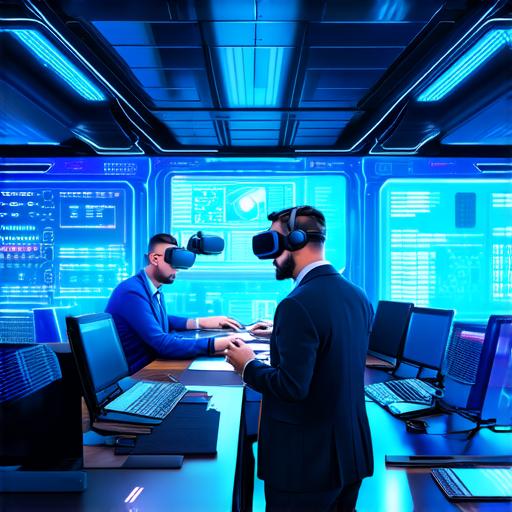Virtual reality (VR) technology has become increasingly popular in recent years, with a wide range of industries adopting it to improve their operations and enhance the customer experience.
Training employees with VR
One way businesses are utilizing VR is through training employees. With VR simulations, employees can practice skills in a safe and controlled environment, without the risk of injury or damage to equipment. This is particularly useful for industries such as construction, healthcare, and military, where mistakes can have serious consequences.
Improving customer experience with VR
Another way businesses are using VR is to enhance the customer experience. For example, in the real estate industry, VR technology allows potential buyers to virtually walk through a property and get a feel for it without having to physically visit. This can save time and money for both the buyer and the seller. Similarly, in the automotive industry, VR simulations can be used to showcase different vehicle models and features, giving customers a better understanding of what they’re purchasing.

Marketing with VR
Businesses are also using VR technology as a marketing tool. With VR, businesses can create immersive experiences that capture the attention of potential customers and set their products or services apart from competitors. For example, a travel company might use VR to create a virtual tour of a destination, giving potential customers a taste of what they could expect if they booked a trip there.
Reducing costs with VR
Virtual reality can also help businesses reduce costs by eliminating the need for physical prototypes or models. For example, an architect could use VR technology to create a virtual model of a building, allowing clients to see and interact with the design without having to physically build it. This can save time and money on materials and labor costs.
Summary
Virtual reality technology has become increasingly popular in recent years, and businesses are using it in a variety of ways to improve their operations and enhance the customer experience. From training employees to marketing products and services, VR is proving to be a valuable tool for businesses looking to stay ahead of the curve.
